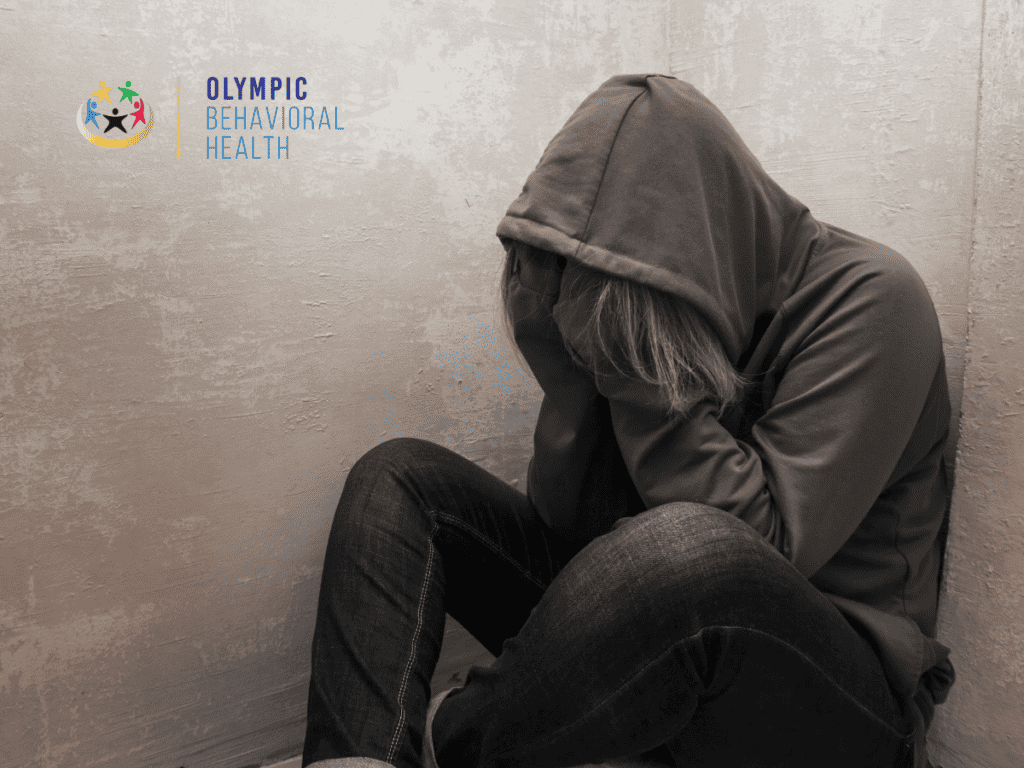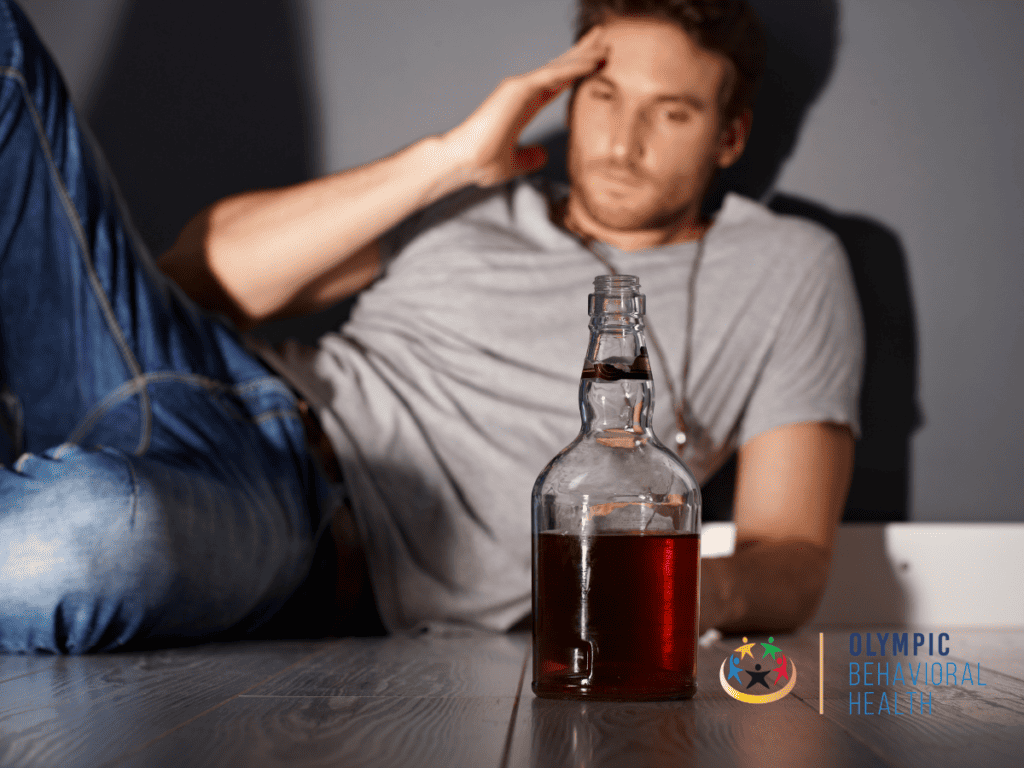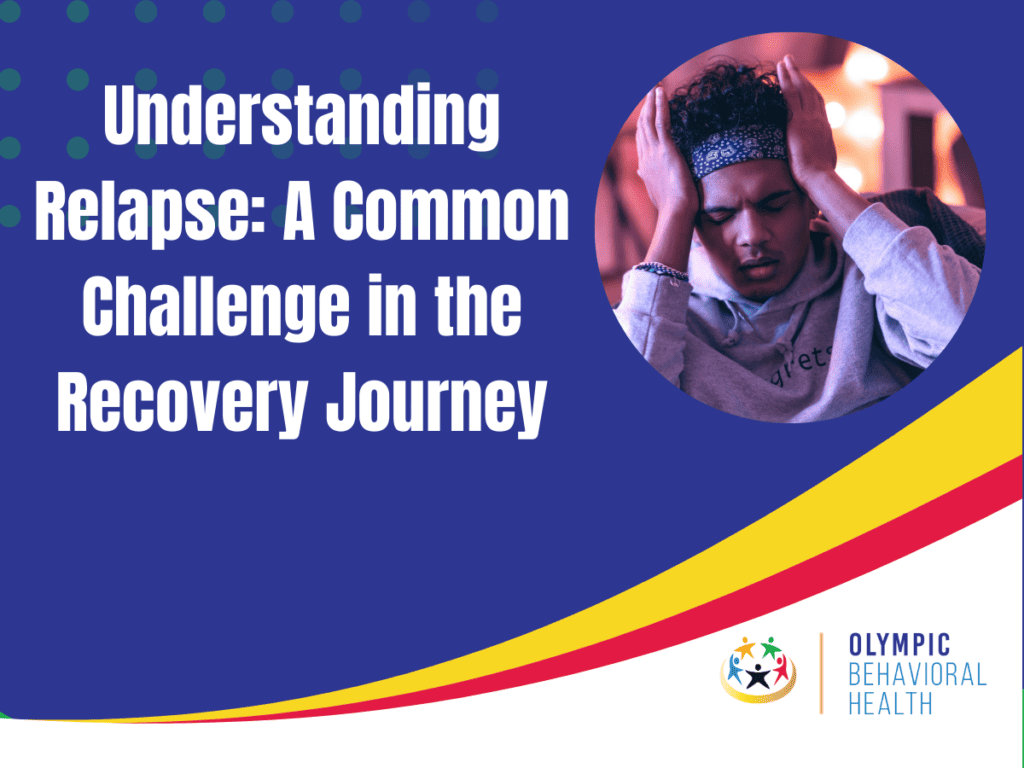Overcoming addiction is a formidable and often protracted process that cannot be accomplished hastily. It is vital to understand that many individuals grappling with addiction have endured prolonged periods, sometimes spanning years, while living with their addiction before mustering the readiness to confront it and seek help.
During those years, individuals contending with addiction develop both physical and psychological dependencies on the substance or behavior involved. These dependencies add layers of complexity to the recovery process and can sometimes result in relapse.
Relapse during recovery is quite common. However, when compared to other types of chronic illnesses—such as asthma and high blood pressure the National Institute for Drug Abuse in a 2020 article ‘Drugs, brains, and behavior: The science of addiction’ found that the relapse rates for substance use treatment are lower. Asthma and high blood pressure have a relapse rate of 50%-70% while the relapse rate in addiction is an average of 40%–60%.
What is Relapse?
A relapse is a return to a substance (drug or alcohol) or behavior, that an addict has managed to control or quit completely. When this happens, the level of substance use or engagement in the behavior returns to previous levels or close to it. According to the United States Department of Veterans Affairs, relapse is both a process and an event. It is not a sudden action, instead it is the final step in a series of behaviors.
When a person enters recovery, their treatment team develops a plan of various interventions, such as medication, therapy, and self-help groups. A relapse is less likely to happen if the person involved follows their treatment plan and has a support system. So, instead of viewing relapse as a moral failing, but rather a sign that a person’s treatment plan is not well tailored to their specific needs.

What are the Causes of Relapse?
Several factors can cause a relapse. After discontinuing substance use, individuals often experience cravings and withdrawal symptoms for several months, heightening the risk of relapse. Anything that can trigger cravings and withdrawal symptoms can cause a relapse.
Social factors commonly linked to relapse encompass
- Inadequate coping skills.
- Manifestations of depression.
- Elevated levels of addiction severity.
- Insufficient social support.
- Reduced belief in the ability to overcome addiction.
- Work-related stress.
- Family issues.
- Lack of motivation for change.
Daily behaviors that can heighten the risk of relapse include
- Non-participation in support group meetings.
- Association with individuals previously involved in substance use.
- Isolation.
- Experiencing hunger, anger, loneliness, and/or tiredness (HALT).
Health-related factors contributing to the risk of relapse include
- Untreated co-occurring mental health disorders.
- Chronic pain.
- Presence of a co-occurring medical condition.
- Intense drug cravings.
Environmental factors that can cause a relapse include
- Passing by bars or gambling houses.
- Encountering smells associated with drug use
What are the Indicators of Relapse?
Identifying the signs of a relapse is important. A full-blown relapse can be prevented if friends and family can pick out signs. The following symptoms may suggest a person is at risk of or has already experienced an alcohol relapse:
- Removing or distancing themselves: A shift in attitude towards recovery may be evident as they believe they no longer require the support of meetings or therapy sessions. Attendance issues, such as lateness or non-attendance, may arise.
- Appearing more stressed: Increased stress levels may be noticeable as individuals abandon coping strategies and deny their heightened stress. They may dismiss rather than address their emotions.
- Changing their routine: A deviation from a well-established and healthy routine may occur. This can include skipping meals, disregarding sleep patterns, or neglecting personal hygiene.
- Experiencing a loss of control: Irrational or unhealthy choices may emerge as a means to alter mood, such as excessive shopping or spending excessive time on social media.
- Return to social drinking: Individuals at risk of relapse may engage in social drinking, convincing themselves they can remain in control or deny any alcohol-related problems.
- Feeling of guilt: After experiencing a relapse, feelings of guilt may surface. This guilt can hinder reaching out for necessary help and support, perpetuating the problem further.
What are the Stages of Relapse?
Melemis SM., in his 2015 article ‘Relapse Prevention and the Five Rules of Recovery’ detailed three stages of relapse.
Stage 1: Emotional Relapse
During the emotional stage of relapse, there isn’t active contemplation about using substances again. Generally, an individual recalls the negative aspects of substance use and lacks the desire to use it again. However, their emotional state sets the groundwork for relapse.
Indicators of the emotional stage involve inadequate self-care, such as avoiding discussions about emotions, isolating oneself from others, non-attendance at support group meetings, attending meetings without active participation, focusing more on others’ needs and issues, and displaying poor eating and sleeping habits.
Over time, the emotional phase leads to feelings of discontent and restlessness, paving the way for the mental stage of relapse.
Stage 2: Mental Relapse
Mental relapse involves a breakdown in cognitive processes preventing substance use after considering its consequences. The individual’s urge to escape their emotional and mental state intensifies, with signs of relapse emerging.
These signs include cravings for substances, thoughts about being with people or going to places associated with drug and alcohol use, idealizing past use or downplaying its negative consequences on their lives, negotiating about using, deceptive behaviors, contemplating controlled substance use in specific situations, actively seeking opportunities to relapse, and planning instances for relapse.
Stage 3: Physical Relapse
Physical relapse occurs when an individual engages in continued substance use. Sometimes, even a single drink or substance use instance can lead to a complete relapse. Many physical relapses result from singular opportunities, such as being offered a drink at a social event. Insufficient coping skills in managing such situations may contribute to a return to substance use.

How to Prevent a Relapse?
The key to managing relapse lies in implementing preventive measures. The following strategies have proven effective for individuals dependent on alcohol or other drugs, reducing the risks of relapse during their recovery journey:
- Avoiding triggers: Steering clear of people, places, and situations that previously led to substance use is crucial in preventing relapse.
- Seeking support: Utilizing both clinical and non-clinical support is essential. A robust support network, whether from service providers or an informal group of friends and family, helps deter negative behaviors and situations.
- Engaging in meaningful activities: Encouraging individuals to participate in activities they enjoy and that contribute positively to the community can foster a positive self-image. This may include joining community groups, choirs, or special interest clubs.
- Prioritizing self-care and balanced lifestyle: Neglecting physical and mental well-being can act as a trigger for substance use. Advocating for healthier lifestyle behaviors, such as adequate sleep, nutritious eating, and maintaining a clean living environment, is crucial.
- Cognitive restructuring: Encouraging a shift in thinking is essential. Individuals should focus not only on reframing their perception of events in the short term but also on learning from mistakes, building a positive self-image, and setting future goals unrelated to substance use.
For those who are already feeling the signs
If individuals face ongoing emotional, physical, and/or mental health challenges, additional strategies may be necessary to support recovery and prevent relapse. These strategies include:
- Medication management: Working with a GP or psychiatrist to find the right mix of medications, such as antidepressants or anti-anxiety medications, can be beneficial.
- Holistic approaches: Exploring alternative tactics that embrace holistic wellness, such as meditation, mindfulness-based therapies, or yoga, can contribute to overall well-being.
- Psychological support: Engaging in psychological therapies, including psychotherapy, cognitive-behavioral therapy, or substance use-specific therapy, can provide valuable support.
- Establishing self-care routines: Developing consistent self-care routines related to diet, exercise, and rest is essential for maintaining overall well-being and supporting the recovery journey.
What Should You Do After a Relapse?
Experiencing a relapse should not be viewed as a failure in the recovery journey; rather, it presents an opportunity for learning, growth, and adjustment in the approach to sobriety. The addiction recovery process after a relapse typically involves several key steps:
Self-Reflection and Acceptance
After a relapse, individuals are encouraged to engage in honest self-reflection and accept that relapses can happen as part of the recovery process. Acceptance of one’s relapse is a crucial step in moving forward and preventing feelings of guilt and shame from hindering further progress.
Reevaluation of Triggers and Coping Mechanisms
Identifying and understanding the triggers that led to the relapse is essential. This may involve revisiting coping strategies, adjusting treatment plans, and developing new, healthier ways to manage stressors and challenges.
Increased Support and Accountability
Seeking additional support from therapists, support groups, friends, and family members is vital after a relapse. Increased accountability can provide the necessary structure and encouragement for individuals to stay on track and rebuild their commitment to recovery.
Adjustment of Treatment Plan
The treatment plan may need to be reevaluated and adjusted based on the individual’s experiences and the circumstances surrounding the relapse. This may involve changes in therapy approaches, medication management, or the introduction of new therapeutic modalities.
Learning and Skill Development
A relapse can be an opportunity for learning about oneself and developing new skills to navigate challenges effectively. This may include enhanced stress-management techniques, improved communication skills, and a deeper understanding of the underlying issues contributing to addiction.
Establishment of a Strong Support System
Building and maintaining a robust support system is crucial for sustained recovery. This includes not only professional support but also the involvement of friends, family, and sober peers who can offer encouragement, understanding, and accountability.
Continued Focus on Wellness
Recovery is a holistic process that goes beyond abstinence. Emphasizing overall well-being, including physical health, mental wellness, and spiritual growth, contributes to a more resilient and sustainable recovery.
Additional Questions
What is the difference between a lapse and a relapse in the context of addiction recovery?
A lapse is a temporary and isolated return to substance use or addictive behavior after a period of abstinence. It’s a brief deviation from established recovery goals, often involving a single episode. Individuals experiencing a lapse usually recognize it, feel remorse, and can recommit to their recovery. A relapse is a more significant and sustained return to addictive behavior after a period of improvement or abstinence.
Can a relationship help with getting sober?
Yes, having a strong and supportive relationship can greatly aid in one’s journey towards sobriety. Support from a loved one can provide motivation, accountability, and a sense of belonging. These factors can help individuals stay committed to their recovery goals and prevent relapse.
Additionally, having a strong and understanding partner or friend can help ease the feelings of loneliness and isolation that often come with addiction recovery. It’s important to have open and honest communication with your partner or loved one, and to seek support from them when needed. When you want to learn more about the effect of addiction on a relationship, read our article.
Can you become addicted to food?
Yes, food addiction is a real and serious problem. Just like with any substance or behavior addiction, individuals can develop a dependence and loss of control when it comes to food. This can manifest in binge eating, compulsive overeating, and other disordered eating behaviors. Food addiction can also be linked to underlying emotional and psychological issues, similar to other addictions.
Seeking professional help and support from a therapist or a treatment center that specializes in food addiction can be beneficial in addressing and managing this issue. Here is an article that delves deeper into the topic of food addiction statistics.
Get help for your Addiction
Addiction Treatment at Olympic Behavioral Health offers help and support for those struggling with addiction. Taking the first step can be difficult, but it is crucial to call for assistance. Our facility in West Palm Beach provides comprehensive addiction treatment programs to guide individuals towards recovery. If you or your loved one is battling addiction, reach out to Olympic Behavioral Health today.

Share This Post



